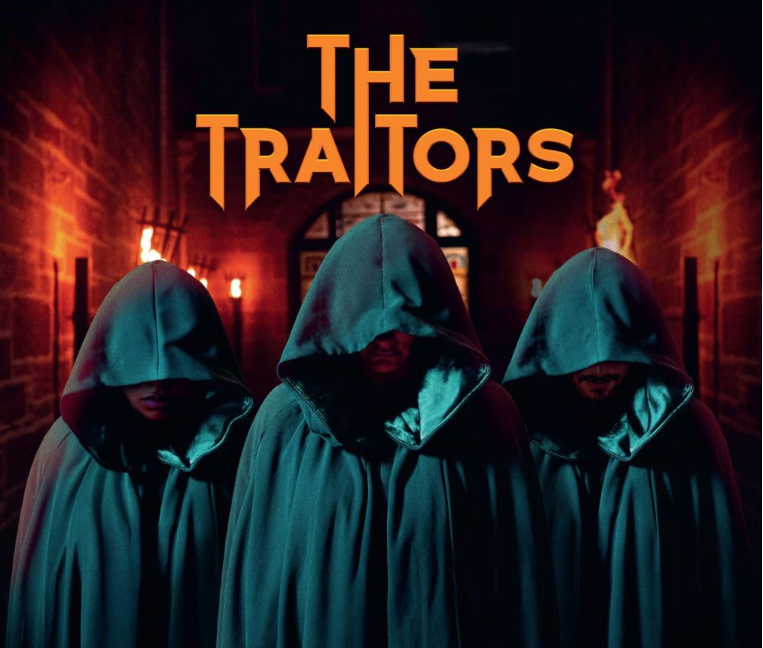There’s growing momentum among users on X/Twitter across two related, but distinctly different, schools of thought in the debate on whether to leave the platform. One is: “We’re not going, we were here first”. The second (if pushed): “We’ll go together”. Power of the people. The Musk era has had both comical moments and dark unnerving moments. Lately it’s become overtly political with his flagrant alignment with Trump and organisations too far to the right for a platform historically home to the left. His recent anti-UK rhetoric and increasing insistence on free speech, seemingly no matter what, makes it an uncomfortable space.
And you only have to scratch the surface to reach the depths of humanity - the social media equivalent of road-rage with users hiding behind their screens, where human beings turn on each other in a toxic battle of wits - the antithesis of #bekind. This sadly is not exclusive to X/Twitter. It’s not a simple issue but, for me, opening a social media account should be like opening a bank account - security measures, proof of identity, no anonymity. People have to be accountable for what they say, invent and incite.
X/Twitter has been my social media of choice for a decade. It is the only place to hear directly from world leaders, to debate and to share in real time opinions and reactions. A great place to be when Question Time is on, or Strictly. The threads can be funny, moving, insightful, thought-provoking, important, social, political. Where else can you discuss the importance of the jam-first debate with Dawn French - and the joy when she replies. To actual me. Every year on the anniversary of Rik Mayall’s passing there’s a wave of grief shared by like-minded people coming together. Where else can you experience that?
There’s a disappointment around X/Twitter though. It isn’t ’the same’. A growing expectation that one day those with sizable followings will agree: “It’s time to go - we’ll see you there” and we all follow in search of the marketplace community that we found in the original Twitter as users finally defy Elon Musk and prove that it’s the people there that control its future. For me, it’s the Carol Vordermans, Deborah Meadens, the Martin Lewises, the Guardian, the Dawn Frenchs (hey, there’s only one Dawn French), the Obamas, Hacked-off Hugh and Count Binface. When they go en masse its raison d’etre goes with it. When the BBC News start quoting from Bluesky instead of X-formerly-known-as-Twitter the game will be up for me. Last week John Cleese said goodbye disappointing his 5m followers. In 2022 Whoopi Goldberg said: “I'm going to get out, and if it settles down and I feel more comfortable, maybe I'll come back." She never has. Stephen Fry left in 2022 and ‘reactivated’ his account solely to stymie impersonation attempts through paid-for verification using his original username.
In the US you have what was a democrat-leaning user base with an increasingly vocal republican owner. A recent US study found that republicans felt increasingly more welcome on the platform with the site becoming more popular with right-leaning users in the two years since Musk bought the company, with only a third of democrats saying they felt their views were welcome on X (Pew Research Centre study). The gathering storm of left versus right in the lead up to the presidential election will hit cyclone levels by early November. There’s a lot at stake. Interestingly the two top accounts by volume of followers worldwide are Musk and Obama, highlighting the polarisation across the platform. In startling and inexplicable contrast the third is . . . Bieber.
The majority of X/Twitter users get their news from the platform. They follow organisations as well as celebrities. In comparison Facebook, Instagram, and TikTok are more used to entertain, or to connect with family and friends. X/Twitter is different. That makes it interesting to advertisers.
What do advertisers stand to gain by advertising on X/Twitter?
X/Twitter has millions of daily active users, albeit not in the same league as Meta. However its users are highly engaged, in real-time discussions about trending events allowing brands to insert themselves into relevant conversations. Brands can engage with trending topics or events as they unfold - an attractive prospect for some advertisers during live events like sports, award shows, breaking news, election results.
X/Twitter is centred around conversation. This allows advertisers to interact directly with consumers, respond to queries, engage in dialogue, making it more personable and dynamic.
Being able to target users by keyword and by the accounts they follow can give precious, precise targeting opportunities not found elsewhere.
What do advertisers stand to lose by advertising on X/Twitter?
Musk is controversial and unpredictable. He has cursed advertisers and filed a lawsuit against GARM (The Global Alliance for Responsible Media) forcing it to dissolve. There have been concerns over platform management, loosening of content moderation, misinformation, and therefore concerns around brand safety.
Musk’s views are polarising and some advertisers want to distance themselves and avoid any risk associated with uncertainly and unpredictability. Brands have to be sensitive to public perception and protect brand safety. Gen Z are unforgiving.
Should a brand advertise on X/Twitter? One thing for sure. The answer is not found in the typical balance of coverage, targeting and cost-efficiency.
A final word from Stephen King this week “Sometimes Twitter sucks, but sometimes it’s a pretty nice place to visit”.
If you would like to discuss this, or anything else, please reach out here.




